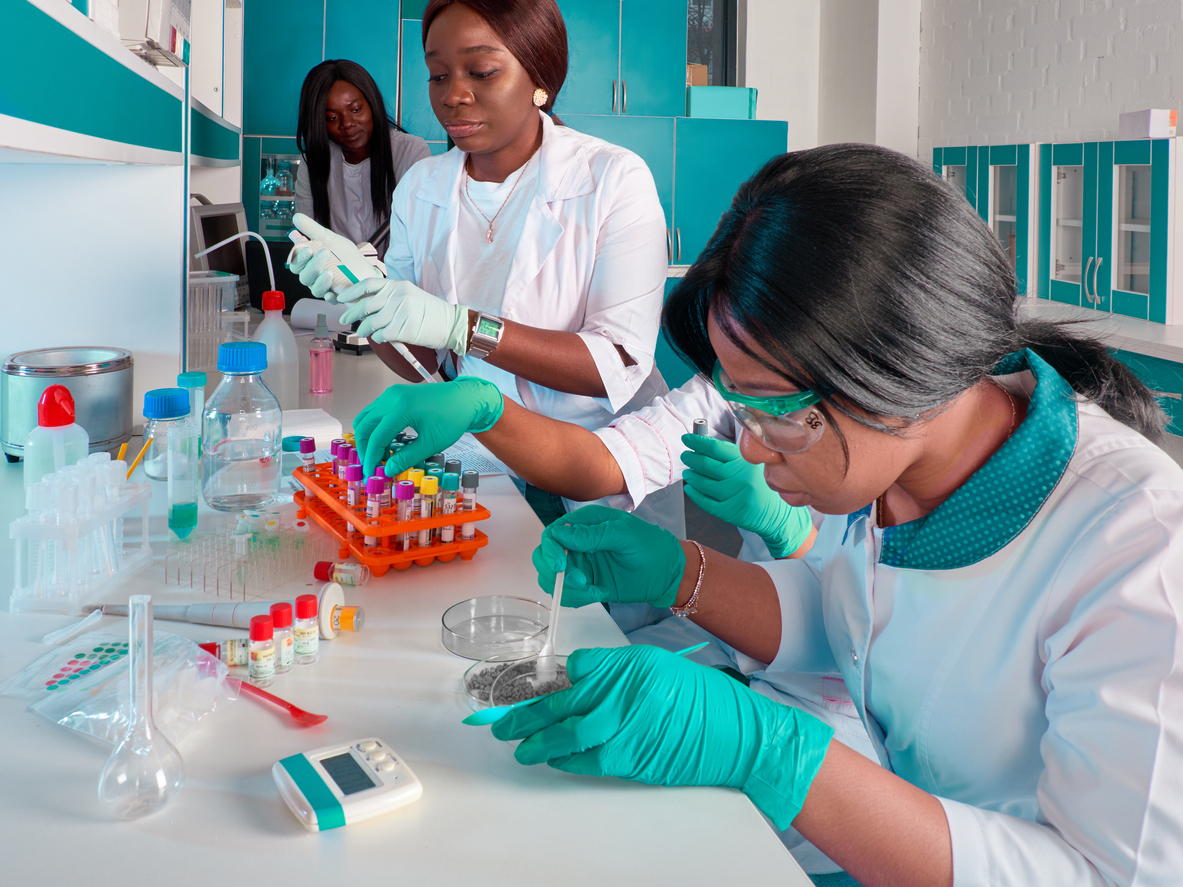
New Genotyping Technology to Boost Africa's Wheat Breeding Programs
August 18, 2021| |
The Kompetetive Allele Specific PCR (KASP) is a fast and user-friendly genotyping technology that uses fluorescent assay to identify differences in DNA sequences. This technology is among the new research developments that can increase the potential of East Africa to produce new wheat varieties that are more suitable to its environmental conditions and likewise improve wheat production and reduce the region's dependence on imports.
KASP works by genotyping DNA polymorphisms between individuals of the same species, whether in the form of single nucleotide polymorphisms (SNPs) or small insertions or deletions (indels) between DNA sequences of individuals. It offers a quick, affordable, and flexible marker system method for genotyping a selected number of SNPs across a large subset of plants, and is able to facilitate the introduction of genes with known economically important effects through marker-assisted selection that can help East African breeders. To date, KASP has been used in the research of a number of crops such as wheat, soybeans, maize, and cassava in the Biosciences eastern and central Africa-International Livestock Research Institute (BecA-ILRI) Hub in Kenya.
Using the KASP in Africa is said to enable local breeding programs to develop improved crop varieties, particularly in changing the perception of wheat research in Africa. This will also allow African breeders to take a step further from generating a vast amount of sequence information to having convenient low-cost diagnostic molecular marker tools to use for their breeding programs. The knowledge generated from African-led studies using KASP will allow the opportunity to deliver African-focused breeding outputs.
Learn more about KASP from the John Innes Centre.
| |
You might also like:
- Biotech a Tenable Solution to Addressing Hunger in Africa, Experts Say
- Scientists Say Modern Biotech Tools Beneficial for West Africa's Yam Industry
- Africa Leads Progress in Biotech Crop Adoption with Doubled Number of Planting Countries in 2019, ISAAA Reports
Biotech Updates is a weekly newsletter of ISAAA, a not-for-profit organization. It is distributed for free to over 22,000 subscribers worldwide to inform them about the key developments in biosciences, especially in biotechnology. Your support will help us in our mission to feed the world with knowledge. You can help by donating as little as $10.
-
See more articles:
-
News from Around the World
- The Biotech Game: A Negotiation Simulation of Science Diplomacy
- The Impact of Gene Technology in Animal Agriculture and Food Production
- New Genotyping Technology to Boost Africa's Wheat Breeding Programs
- University of Illinois Study Opens Black Box of Herbicide Resistance
- Scientists Work to Improve Crops' Photosynthesis and Yields
- Researchers Develop Technique to Map Out Regulatory Switches in Maize Genome
- Gene to Make Plants Heat-Tolerant in Rising Temperatures Gets Patent
- Philippines on the Right Path With Genome Editing Regulations
- GMO Panel Finds GM Carnation Does Not Pose Risk To Health, Environment
- EFSA GMO Panel: Cotton GHB811 as Safe as Conventional Counterpart
-
Plant
- Researchers Present Prospects for Genome Editing of Potato
- IGI Works on Net-Zero Farming and Carbon Capture
-
Read the latest: - Biotech Updates (February 4, 2026)
- Gene Editing Supplement (January 28, 2026)
- Gene Drive Supplement (February 22, 2023)
-
Subscribe to BU: - Share
- Tweet

